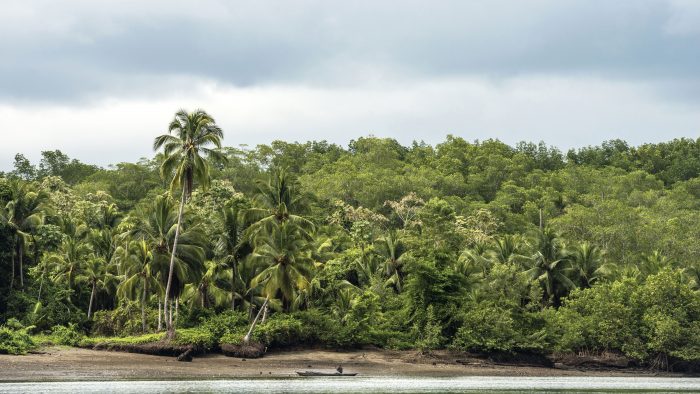 Social Sciences
Social Sciences
Natural Right

In 2011, a shrimp farmer in Ecuador sued the government, pitting his right to a livelihood against an unusual adversary: Mother Nature.
The farmer filed suit after the government designated an endangered mangrove forest as a reserve and removed shrimping from the area. In a case watched closely by the country’s powerful shrimping industry, the farmer argued that his economic interest was more important than the forest and a judge agreed, citing constitutional rights to property and to work.
But the ruling was overturned. A superior court ruled in 2015 that “rights of nature” also enshrined in the constitution take precedence. The court acknowledged that it was effectively prioritizing nature over the interests of humans.
For Craig Kauffman, a UO assistant professor of political science, the ruling proved the power of an approach to environmental protection based on rights of nature. It prioritizes the rights of all living things to a healthy environment and it gives legal standing to forests, rivers and other ecosystems.
As the idea takes root in countries committed to environmental stewardship, Kauffman is collecting the information they need to act. He was recently named to a body of the United Nations that assesses Earth-friendly laws and policies that governments potentially can enact to ensure that development is in harmony with nature.
As one of 45 researchers worldwide named to the UN working group, Kauffman analyzes how laws that recognize rights of nature are working in practice and shares his findings with the global community.
“It’s an opportunity for my research in environmental law to impact policy on an issue I care very much about,” Kauffman said.
The rights-of-nature concept was introduced years ago, but it’s gathering steam amid growing concerns about climate change.
Ecuador was the first nation to include rights of nature in its constitution. Now, other countries are taking similar steps with constitutional changes and national laws, including Bolivia and New Zealand; the approach is also under review in Brazil, Argentina, India, Nepal, Cameroon and elsewhere.
About three dozen US cities have adopted rights-of-nature laws prohibiting natural gas fracking and other environmentally destructive activities, Kauffman said. It can be difficult to prove that a company’s actions have directly damaged an individual, he added—it’s much easier to show how destructive operations hurt a river or watershed.
Advocates are also urging the UN to one day make a universal declaration of the rights of nature.
Such a declaration would signal the importance of these rights as norms of society, spurring countries to incorporate them into legally binding treaties and domestic laws. International figures including UN Secretary-General Ban Ki-moon and Pope Francis advocate this path as a way to address climate change.
There is also an important precedent for this approach, Kauffman notes. The UN’s Universal Declaration of Human Rights in 1948 prohibited slavery and torture and paved the way for their inclusion in international law.
“With that declaration, those norms of human rights were strengthened and later enshrined in international law,” Kauffman said. “The idea is to do that with rights of nature.”
—Matt Cooper
Photo caption: Mangroves Ecological Reserve Cayapas-Mataje, a wildlife refuge in northern Ecuador, was the backdrop for a milestone legal decision that privileged the rights of the forest over economic interests.


 Twitter
Twitter Facebook
Facebook Forward
Forward